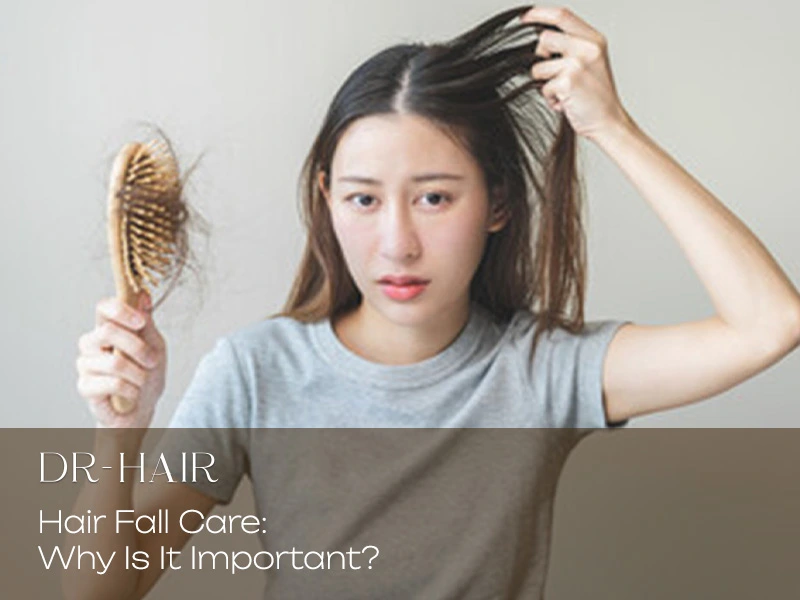Anti Hair Fall Care is Essential
Hair is more than just a crown we never take off — it’s a reflection of our health, lifestyle, and confidence. Yet, many people struggle with strands of hair showing up on their pillows, in the shower, or stuck in their hairbrush. The terms “hair fall” and “hair loss” are often used interchangeably, but did you know they’re actually different? Understanding the difference is crucial when choosing the right hair care and treatment options.
Let’s explore how hair fall and hair loss differ, why it matters, and how anti-hair fall care can make a difference — both for your scalp and your wallet.
What’s the Difference Between Hair Fall and Hair Loss?
At first glance, it may seem like a simple case of semantics, but hair fall and hair loss are distinct conditions.
Hair Fall
Hair fall refers to the natural shedding of hair. It’s a part of the normal hair growth cycle. On average, losing 50 to 100 strands per day is considered normal. This shedding can increase temporarily due to:
Stress
Seasonal changes
Poor diet
Hormonal shifts
Use of harsh hair products
Hair fall is usually temporary and reversible once the underlying cause is addressed.
Hair Loss
Hair loss, on the other hand, is a broader term that refers to permanent or progressive thinning or baldness. This can be caused by:
Genetic conditions (like androgenetic alopecia)
Autoimmune diseases (like alopecia areata)
Certain medications or treatments (like chemotherapy)
Chronic health conditions
Scalp infections
Hair loss often requires medical intervention and long-term treatment — sometimes even surgical solutions.
Why Anti-Hair Fall Care Matters
Many people ignore early signs of increased hair fall, assuming it’s normal or unavoidable. However, early care can prevent temporary hair fall from escalating into long-term hair loss. That’s where anti-hair fall treatments and products come in.
1. Prevention is More Affordable Than Cure
Preventive hair care, such as using anti-hair fall shampoos, serums, and natural treatments, can be significantly cheaper than the cost of treating advanced hair loss. Once hair loss becomes severe, treatments like PRP (Platelet-Rich Plasma), laser therapy, or hair transplants can cost hundreds to thousands of dollars. A proper anti-hair fall routine could save you thousands in the long run.
2. Promotes Scalp Health
Many anti-hair fall products are formulated to strengthen roots, improve blood circulation, and nourish the scalp. A healthy scalp provides a strong foundation for robust hair growth.
3. Addresses Root Causes
Some anti-hair fall care systems include DHT blockers, vitamins, and essential oils to tackle hormonal imbalances, oxidative stress, or inflammation — all common causes of hair fall.
4. Boosts Confidence
Nothing zaps confidence quite like noticing a thinner ponytail or a widening hair part. Regular care helps maintain volume and shine, which plays a huge role in self-esteem and appearance.
Choosing the Right Anti-Hair Fall Products
Not all products are created equal. Here are some key ingredients to look for:
Biotin – Strengthens hair and improves texture
Caffeine – Stimulates hair follicles
Niacinamide (Vitamin B3) – Improves blood circulation
Saw Palmetto – Natural DHT blocker
Amla and Bhringraj – Ayurvedic herbs for scalp nourishment
Tip: Always read reviews and consult with a dermatologist if you’re unsure which product is best for your hair type or concern.
When to See a Doctor
While some hair fall is normal, here are signs that it’s time to seek professional help:
Sudden, patchy hair loss
Excessive shedding lasting over 3 months
Itching, redness, or bumps on the scalp
Family history of baldness
Thinning hairline or bald spots
Dermatologists can perform scalp analyses, blood tests, and recommend personalized treatments to manage or reverse hair loss.
Frequently Asked Questions (FAQs)
1. Can I completely stop hair fall?
You can’t stop hair fall entirely — some shedding is natural. However, you can reduce excessive fall by identifying and treating causes like stress, poor nutrition, or harsh products.
2. Are anti-hair fall shampoos really effective?
They can be effective if used consistently and chosen according to your hair type. They work best when paired with a healthy lifestyle and other supportive treatments.
3. How long does it take to see results from anti-hair fall care?
Results usually take 4 to 8 weeks depending on the severity of your condition and consistency in using the products. Hair growth is a slow process — patience is key.
4. Is hair fall more common during certain seasons?
Yes. Many people notice more hair fall in autumn and spring, a phenomenon linked to the hair’s natural growth cycle. This is typically temporary.
5. Can diet really affect hair fall?
Absolutely. Hair is made of protein (keratin), and your diet impacts the strength and health of your hair. Lack of iron, zinc, biotin, and protein can increase hair fall.
Final Thoughts
While the line between hair fall and hair loss can feel thin, the implications are not. Understanding the difference can help you take timely action and choose the right care. An anti-hair fall routine isn’t just about preserving strands — it’s about investing in long-term scalp health and confidence.
Whether you’re noticing a few more hairs in the shower or feeling anxious about thinning spots, don’t ignore the signs. Prevention is not only more effective — it’s far more affordable.
